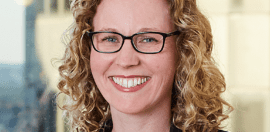COVID-19: Five ways to help your community organisation to respond and adapt

26 May 2020 at 7:00 am
Do you have a plan for how your organisation will respond and adapt to COVID-19? Planning can help you maintain stability during uncertain times. In this article, Lali Wiratunga from Westpac’s Davidson Institute shares five reasons why.
COVID-19 has generated a lot of uncertainty among community organisations. The COVID-19 pandemic is the textbook definition of VUCA – volatile, uncertain, complex and ambiguous. It is a term that’s been used in management literature for many years to describe challenging environments. In VUCA times, we’re in uncharted territory, and even the most seasoned professionals are unlikely to make concrete predictions.
One thing is certain for leaders of Australia’s community organisations: those that can respond and adapt to the crisis are more likely to be ready and serve their communities in the next normal, a post-COVID-19 world. Having a plan in place can be an effective way to help your organisation do just that – even when you don’t know what the future may hold. Here are a few reasons why.
1. It shows commitment to your community and those you serve through your purpose and mission.
The COVID-19 crisis has acutely impacted the people served by community organisations. By considering how their behaviour may change over the coming months, you’ll be in a much better position to meet their needs.
An important place to start is your purpose and your mission. In a post-COVID-19 environment, there are several things to consider:
- Your purpose. A fit between your purpose and the parts of your organisation is important as it drives your employees, your volunteers, your members, your donors, and your partners to better serve your beneficiaries.
- Your mission statement. Does your existing mission statement still hold true and maintain relevance for your key stakeholders such as beneficiaries, members, employees, volunteers, donors and community partners? Conversely does it need to be updated? If updates are made you need guidance from experts to ensure you maintain charitable status and tax exemptions.
- Listening to those you serve. Will your beneficiaries and customers have the same demand for your services or has their focus shifted to more immediate concerns that you could help them with?
Further, perhaps some services from your community organisation may be more in demand than others, or some groups of your beneficiaries may change the way they access or consume your services. Having a plan in place to market to changing groups or switch focus to a new area shows your beneficiaries that you care and are adaptive.
2. It shows loyalty to your employees.
With good reason, many of your employees will be concerned about their jobs during these uncertain times. Will their job still exist or will their hours be cut? Showing your employees you have a plan for how you’ll work through various eventualities, such as changes to cash flow or disruptions to operations, may help ensure they’re ready to deal with whatever comes next.
Westpac’s Davidson Institute has put together steps and resources (PDF 162KB) that may help you to plan and respond in the interests of your organisation’s continuity at a time when you may have to make significant decisions.
3. It reduces risk.
Even though we cannot determine exactly what’s going to happen next, mapping out potential scenarios can help you identify what might happen in the future. This way, the management team of your community organisation can make informed decisions and, crucially, reduce potential risks.
Scenario planning helps to identify what might happen in the future of your organisation, such as predicting cash flow in the short, medium or long term. By modelling each scenario, you can create contingency plans to better prepare you for any situation.
To help, Westpac’s Davidson Institute has created resources, including a template (641kb) to scenario plan the impact of COVID-19 for your organisation.
4. It helps your organisation adapt.
“Pivot” is the buzzword of the moment, and it’s easy to see why. People’s way of life has undergone a dramatic shift and organisations that can adapt and change are much more likely to cope during the COVID-19 crisis.
But what could a pivot mean for a community organisation? For example, if grants are tied to particular outcomes, discussions could take place with the funder to seek flexibility. This could allow the funds to be repurposed to facilitate a “pivot” of the organisation in light of the current COVID-19 situation which may impact its ability to deliver programs. It might mean pivoting to work out how to continue to deliver much-needed services after fundraisers are put on hold and volunteers are forced to stay at home.
Sydney and Brisbane-based social enterprise Jigsaw creates jobs and training opportunities for people with a disability. When COVID-19 first hit they acted quickly, moving their training programs online. This has allowed them to expand their support services with people now able to access their training programs nationwide.

Jigsaw founders, Paul Brown and Laura O’Reilly, have successfully pivoted their social enterprise and are now able to deliver training programs nationwide.
However, a pivot without a plan represents a significant risk to any business. Exploring new opportunities requires consideration and a sound strategy to be successful.
To help your organisation pivot with confidence, you could use the Innovation Toolkit designed by Westpac’s Davidson Institute to help you to gain insights, generate new ideas, test those ideas, and implement solutions to help your organisation to thrive. It’s designed to be self-service so that you and your team can work through the process in a way that suits you.
5. It helps yours and your people’s mental health and wellbeing.
The COVID-19 crisis is sadly having a serious impact on people’s mental health. Everything from managing cash flow and negotiating a rent reduction, to helping your beneficiaries manage their own wellbeing can add to your employee’s worries and make them feel anxious.
Knowing that the leadership team has a plan and trusting them to manage whatever happens next can help to alleviate some of these feelings and improve your employees’ mental health and wellbeing. Enabling them to be in a better position to help in the community.
With this in mind, Westpac’s Davidson Institute has put together a handy checklist of cash flow and cost management strategies that could help ease the strain on your community organisation.
Even though you may not know what the future holds, having a plan in place can help give you and your community organisation a little bit of certainty in an uncertain world.
Things you should know:
This article is produced by the Davidson Institute. The Davidson Institute offers a range of money management topics for individuals, businesses and community organisations to help them build their financial confidence. For more information visit www.davidsoninstitute.edu.au
This information is general in nature and has been prepared without taking your objectives, needs and overall financial situation into account. For this reason, you should consider the appropriateness for the information to your own circumstances and, if necessary, seek appropriate professional advice.
Westpac Banking Corporation ABN 33 007 457 141 AFSL and Australian credit licence 233714.







